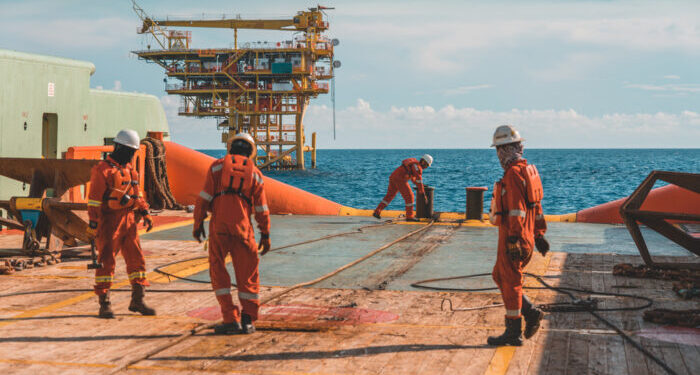Noting the impact of the Russian invasion in Ukraine, and considering the decision taken by the thirty-fifth extraordinary session of the IMO Council, the member Authorities of the Black Sea MoU have agreed to consider the issue of repatriation of Ukrainian seafarers.
Firstly, Port State Control Officers (PSCO) may encounter seafarers whose documentation has expired. PSCOs are encouraged to use their professional judgment, taking into account any available documentation provided by the MLC shipowner and the flag State and information from the relevant crew member(s) to evaluate the safety risks caused by extending agreements for long periods of service, reviewing levels of stress and fatigue of seafarers who have already finished performing their period of service on board and facilitating repatriation and crew changes in an appropriate manner.
However, the Black Sea MoU notes that any extension of the period of service on board beyond the default 11 months should be authorized only on a case-by-case basis to face the emergency situation and only with the seafarer’s consent.
The port State is also urged to specifically require written evidence of the flag State’s authorization for each vessel including (a list of) individual seafarers performing any period of service on board beyond the default 11 months.
Moreover, it is recalled that a valid seafarers’ employment agreement (SEA) must remain in force until the seafarer is duly repatriated in accordance with Regulation 2.5 of the MLC, 2006. And the vessel should be treated in the normal manner where a SEA is expired.
When advising the port State of the need to extend periods on board, the ship operator should confirm that the seafarer(s) in question have requested or agreed to, the extension and there is a plan or process that covers how variations to the MLC requirements would be managed. This plan or process may include, or consist of:
- Amendments to the relevant parts of the Declaration of Maritime Labour Compliance – Part I & II with respect to section 10 of Standard A5.1.3 of the MLC that to provide specific equivalents solutions to address the Covid-19, Pandemic;
- Agreement of the flag States including appropriate conditions, accompanied by a plan submitted by the ship owner describing what measures are being taken to comply with the conditions imposed by the flag State;
- If seafarers face issues with STCW certification the PSCO is advised to take into account of any available documentation provided by the appropriate maritime administration and the flag State and information from the relevant crew members.
- In cases where it has been difficult for seafarers to renew or extend their medical certificate, the flag administration may allow seafarers to serve on-board. PSCOs may be advised to accept documents produced by the flag State which acknowledge seafarers extended stay on board due to force majeure associated with the military aggression against Ukraine.
- Any other mechanisms that will ensure the welfare of seafarer has not been compromised while waiting to travel home (such as agreed repatriation to another country).
In considering the measures to mitigate the situation, the port State is advised to take actions as appropriate, based on a pragmatic and practical approach. To consider the situation, the port State may examine the following factors:
- Whether the seafarer requested to extend their contract voluntarily due to perceived risk. In such cases, the extension should generally be permitted.
- Whether the flag State has acknowledged the request for extension and the plan to repatriate seafarers as soon as is safe and practical.
- Where the operator requests an extension, whether the individual seafarers are willing to stay on board? There can be no uncertainty about this element.
- Whether the seafarers’ entitlements under MLC are protected. The ship owner should advise how the seafarers’’ entitlements are to be protected in light of the extended stay on board and what plans the ship owner has to repatriate them.
- Whether the ship owner has put alternative arrangements in place to pay seafarers and/or arrange for the payment of allotments to dependents. If so, whether this has been agreed in writing by the seafarer and there is evidence of payment.
In a similar move, following the developments in Ukraine, the Paris MoU Advisory Board (MAB) considered that there is a need to apply flexibility under these circumstances considering difficulties to be encountered in repatriation of seafarers.
According to the ICS and the IMO, just under 500 seafarers remain sheltered awaiting evacuation onboard 109 ships at Ukrainian ports in the Black Sea and the Sea of Azov, down from 2,000.




























































